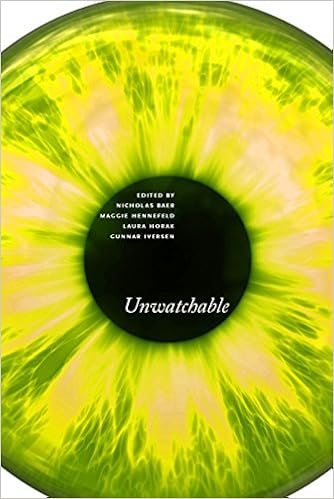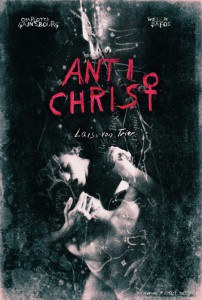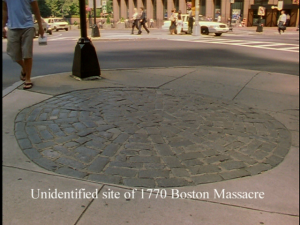My contribution to the 2019 anthology Unwatchable, published by Rutgers University Press and edited by Nicholas Baer, Maggie Hennefeld, Laura Horak, and Gunnar Iversen. — J.R

My refusal to watch Lars von Trier’s Antichrist (2009), even after Criterion generously sent me a review copy, isn’t a position I arrived at suddenly or lightly. Even though the film premiered the year after I retired as a weekly reviewer, thus obviating any possible professional obligation, my decision wasn’t only based on the near-certainty that I would hate it — which, after all, hadn’t prevented me from twitching all the way through The Passion of the Christ five years earlier. Nor was it founded on any conviction that von Trier is devoid of talent, a conviction I don’t have.

Trying retroactively to account for my steadfast refusal to see the film, arrived at eight years ago, I can only take the blatantly ahistorical, illogical, and quintessentially Trieresque tack of citing a remark of his quoted in the Guardian only six months ago. It concerns his latest project (I won’t assist his ad campaign by mentioning the title) — a feature about a serial killer (natch) that takes the serial killer’s viewpoint (ditto). It’s a film, he says, that “celebrates the idea that the life is evil and soulless, which is sadly proven by the recent rise of the Homo trumpus —the rat king. Read more
From Film Quarterly (Winter 2008-09: Volume 62, Number 2). — J.R.


It’s been gratifying to see the almost instant acclaim accorded to John Gianvito’s beautiful, 58-minute Profit Motive and the Whispering Wind (2007), especially after the relative neglect of his only previous feature-length film, the 168-minute The Mad Songs of Fernanda Hussein (2001).
The more recent film — a meditative, lyrical, and haunting documentary about grave sites that won the grand prix at the Entervues Film Festival in Belfort in 2007 and both a Human Rights Award and a special mention at the Buenos Aires Festival of Independent Film in 2008 —- also received an award at the Athens International Film and Video Festival in Ohio and was named the year’s best experimental film by the National Society of Film Critics. (Full disclosure: I nominated Profit Motive for the last of these awards, and headed the jury of the same Buenos Aires film festival in 2001, which gave The Mad Songs its top prize.)
The Mad Songs focuses on the irreparable effects of the first Gulf war in 1991 on three separate powerless people in New Mexico (which is where the film in its entirety was shot). Profit Motive focuses on the grave sites of several dozen heroes of progressive struggles throughout American history. Read more
From Jean-Luc Godard: Son-Image 1974-1991 (New York: Museum of Modern Art, 1992). -– J.R.

“Jean-Luc cultists,” complains Judith Crist in the World Journal Tribune. God bless them! They constitute a line of defense against every manipulative insult the entertainment business throws out, there are more of them each year, and they may even be winning. — Roger Greenspun (1)

Greenspun’s rallying cry of a quarter of a century ago testifies to the passion and debate that used to be stirred up in the United States when Godard’s name was mentioned. The gradual phasing out of that debate and the depletion of that passion cannot be explained simply, and to understand it at all requires some careful thought about how American culture as a whole has itself changed in the interim. For a director still closely identified with the sixties in American film criticism, Godard is regarded today with much of the same fear, skepticism, suspicion, and impatience that greet many other contemporary responses to that decade. And his status as an intellectual with a taste for abstraction may make him seem even more out of place in a mass culture that currently has little truck with movie experiences that can’t be reduced to sound bites. Read more






